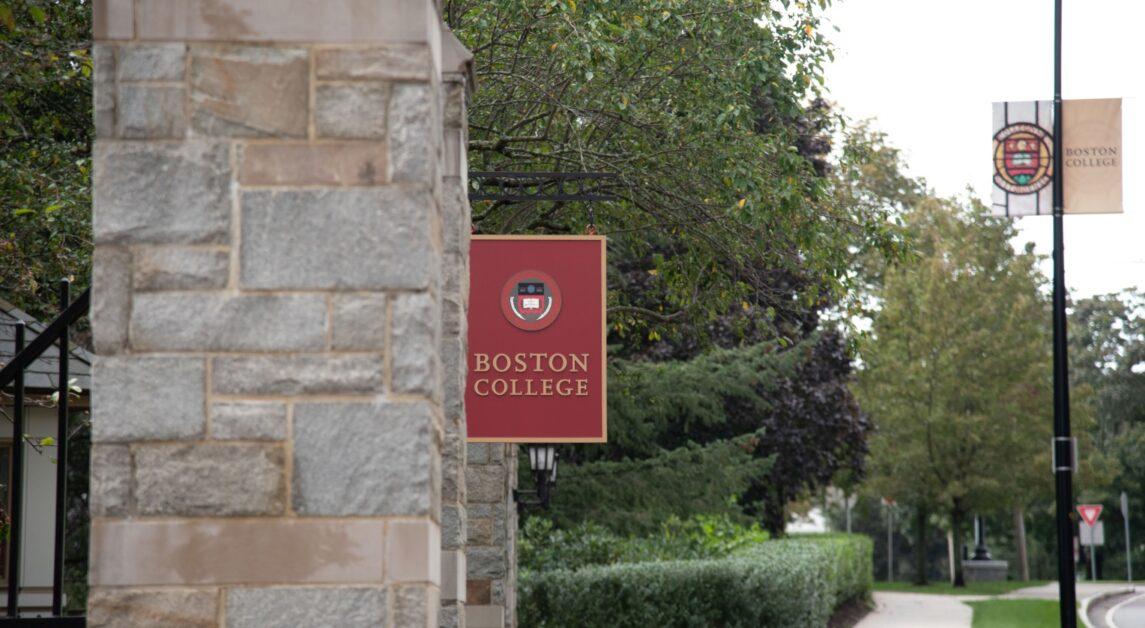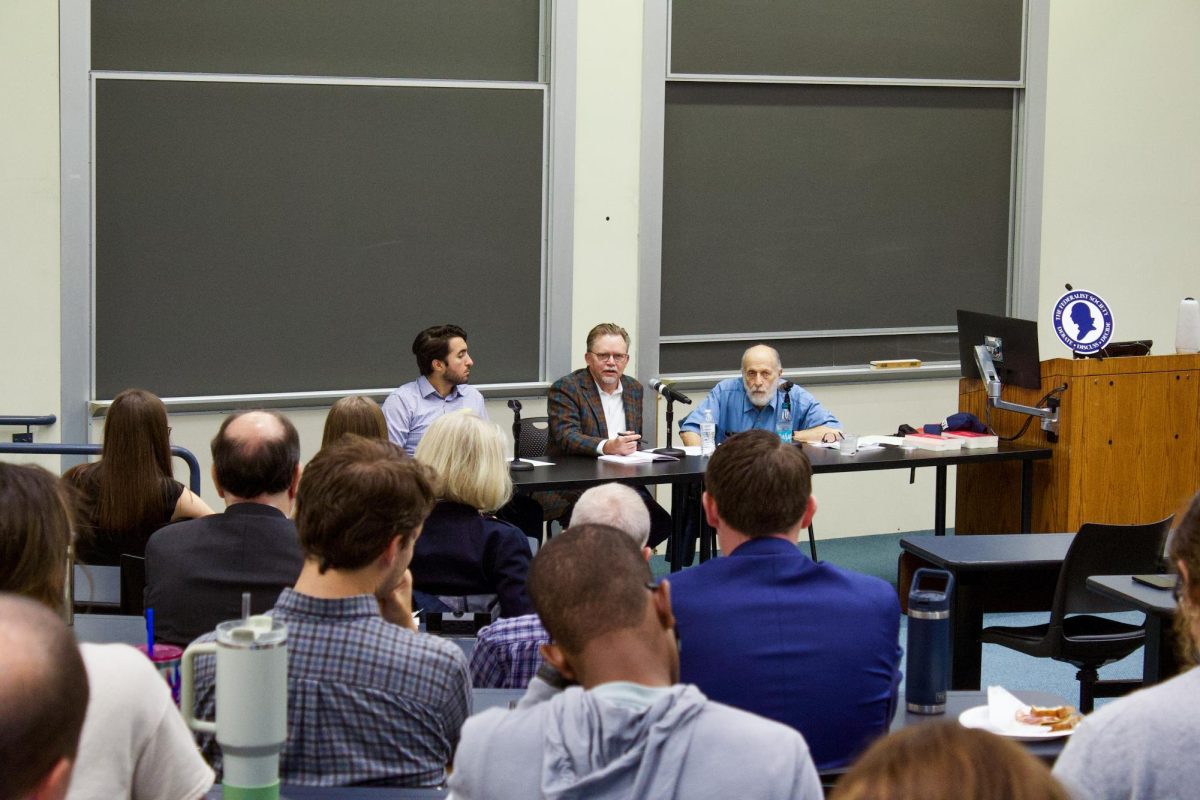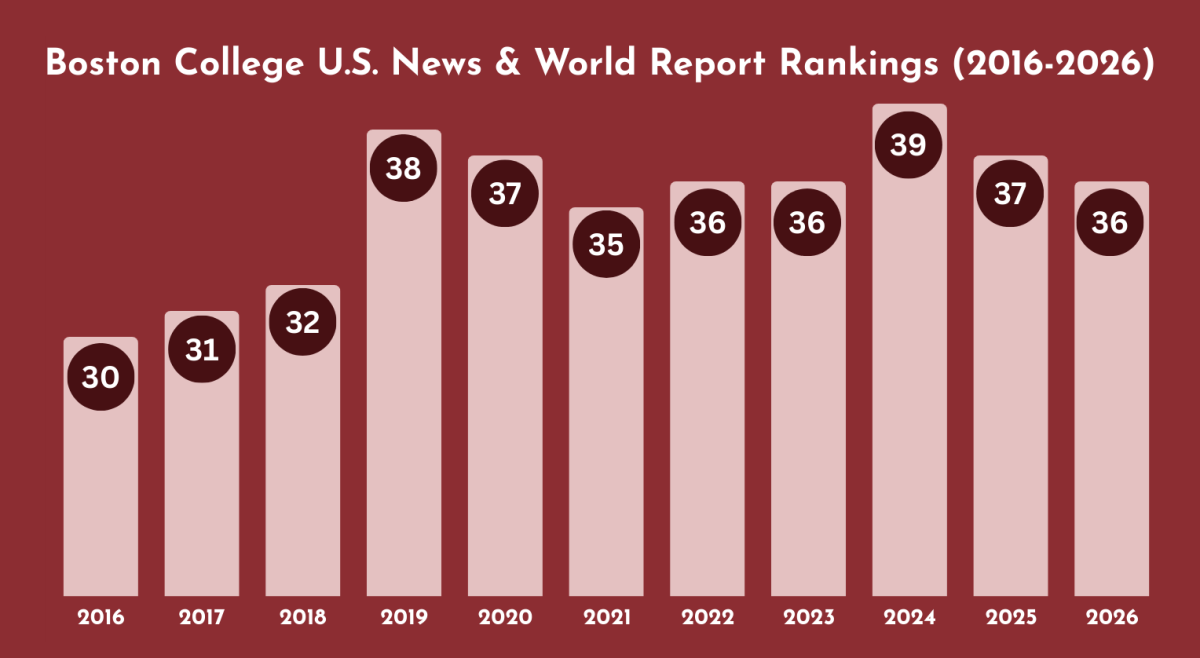A lawsuit against Boston College for an alleged mismanagement of retirement funds got the green light to go to trial from a U.S. District Court judge.
“This Court rules that there is a genuine dispute of material fact as to whether the Committee breached its fiduciary duties,” Judge William G. Young said in a memorandum decision.
Young also wrote that BC’s chances of avoiding trial were “well-nigh impossible” and that the University’s motion for a summary judgment was a money-wasting delay of proceedings—which took 21 months from the initial complaint in June 2022 to his ruling last week.
“In short, this entire summary judgment exercise has been a monumental waste of time,” Young wrote. “And no one ought be surprised.”
Two former BC employees, Connie Sellers and Sean Cooper, are suing the University in a class action lawsuit, alleging BC mismanaged their retirement plans.
Sellers and Cooper first filed the suit in June 2022 against BC’s trustees, the plan investment committee, and 10 “John and Jane Does.” Their complaints claim that BC provided 401(k) retirement plans subject to excessive recordkeeping and management fees and that the investments themselves were imprudent.
“Here we have a case where two BC employees, on behalf of a class of more plaintiffs … are bringing a claim in federal court under the federal law, ERISA, stating that when they turned their cash over to these trustees to invest and to manage it on their behalf, the trustees did not meet their duty of prudence,” said James Mulhern, a partner and law clerk at Mulhern & Scott PLLC and former executive editor of the Harvard Law Review.
University Spokesman Jack Dunn said that despite the court’s decisions to proceed with the trial, the recent ruling did not find that BC or the investment committee acted in bad faith.
“While the court allowed the case to proceed, it considerably narrowed the open issues and found in BC’s favor on a number of points … including that the investment committe’s process to monitor investments was prudent.” Dunn wrote in a statement to The Heights.
On Aug. 15, 2022, BC filed a motion to dismiss the case, which Young denied in a memorandum decision five months later. On Sept. 29, 2023, BC filed a motion for summary judgment—a ruling in the University’s favor without a trial.
In his recent April 11 ruling, Young denied the University’s requests for summary judgment on two of the suit’s central three claims.
“This Court DENIES Boston College’s motion for summary judgment as it relates to the Recordkeeping Fees Claim,” Young wrote. “This Court also DENIES Boston College’s motion for summary judgment on the Challenged Investment Claim.”
The court granted BC’s summary judgment motion, however, on claims of imprudence.
“This Court GRANTS Boston College’s summary judgment motion on the claims that it violated the Plans’ documents and that it failed prudently to monitor its fiduciaries,” Young wrote.














